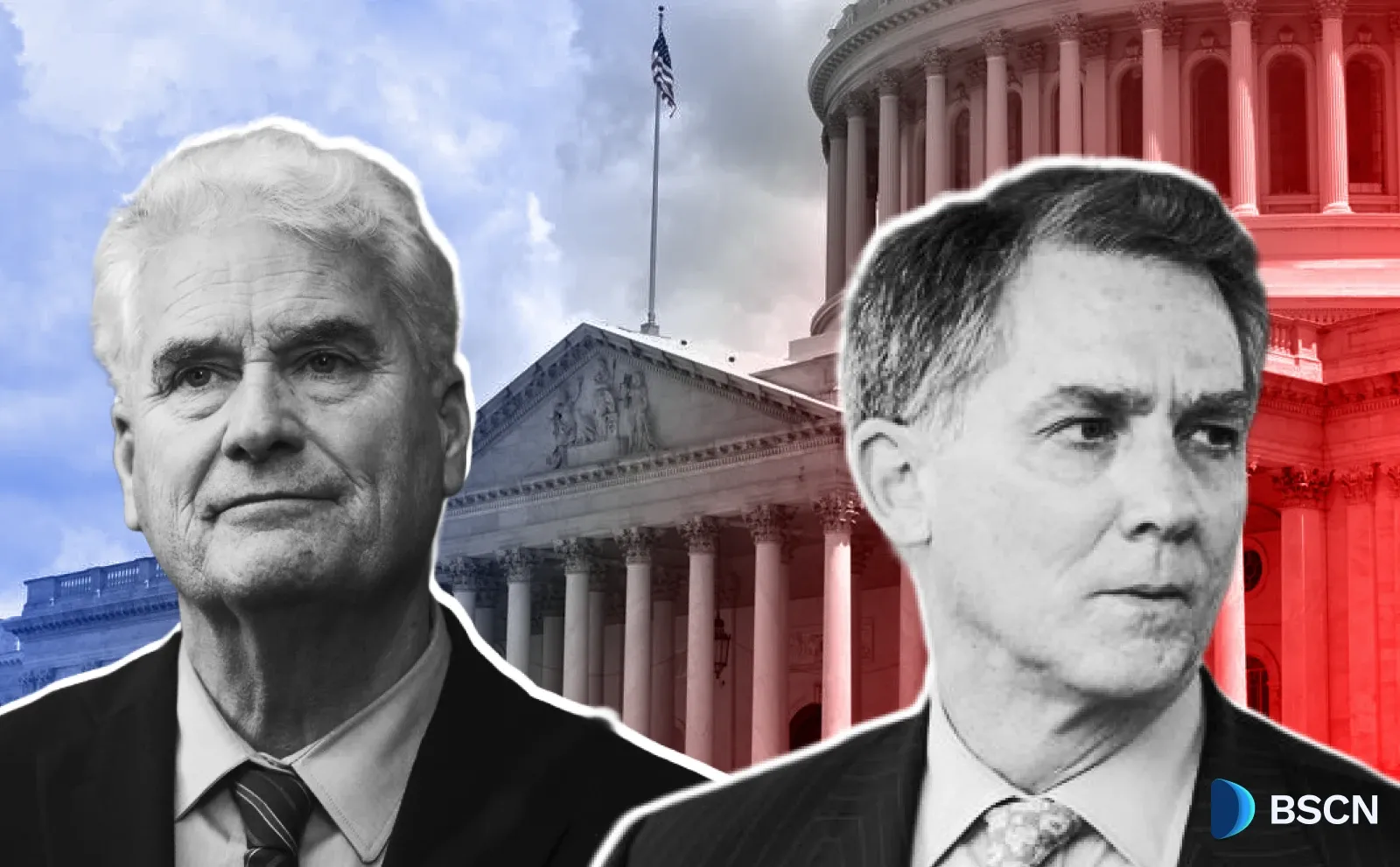Bitcoin Life Insurance Firm Meanwhile: How it Works?

Backed by high-profile investors including OpenAI’s Sam Altman and Xapo founder Wences Casares, the firm provides BTC Whole Life insurance policies—offering long-term wealth protection in Bitcoin instead of fiat.
Soumen Datta
April 11, 2025
Table of Contents
Bitcoin is no longer just a speculative asset or digital gold. Now, it's making its way into something as traditional and conservative as life insurance. A Bermuda-based startup called Meanwhile is trying to reshape the life insurance industry by backing its policies with Bitcoin.
The company recently raised $40 million in Series A funding, led by Framework Ventures and Fulgur Ventures, with participation from Xapo founder Wences Casares. This funding round values the firm at $190 million, nearly double its valuation from 2022.
But what exactly does Bitcoin-based life insurance look like—and why are people in inflation-prone countries paying attention?
How Does Meanwhile Work?
At its core, Meanwhile functions like a traditional life insurance company. You pay a premium. When you die, your family gets a payout.
But there’s one big difference: everything is denominated in Bitcoin.
Clients pay monthly premiums using BTC. These funds are then managed and lent to large financial institutions such as crypto exchanges and market makers. The firm expects a 3% return on these loans, which helps fund operations and policy payouts.
When the policyholder dies, their chosen beneficiary receives the payout in Bitcoin—not fiat.
Why Bitcoin and Not Dollars?
CEO Zac Townsend says the value proposition lies in Bitcoin’s long-term strength against inflation.
“The dollar has lost about 25% of its value over the past five years,” Townsend notes. “That’s not a great way to preserve value for your children.”
Bitcoin, in contrast, is decentralized, censorship-resistant, and has a fixed supply, which many believe makes it a more secure store of value over time.
For people living in regions with unstable currencies, such as Argentina or parts of Africa, this model offers a compelling alternative to fiat-based policies that may lose purchasing power over time.

Is Bitcoin Too Volatile for Insurance?
Critics often raise concerns about Bitcoin’s extreme short-term volatility. A single day's move can swing thousands of dollars up or down. That doesn’t sound ideal for an insurance product meant to offer stability.
But Townsend argues that Bitcoin is volatile only in the short run, and the long-term performance speaks for itself.
Since Bitcoin’s launch in 2009, it has consistently outpaced inflation and fiat currency depreciation—even accounting for crashes and bear markets.
The BTC Whole Life Policy
Meanwhile offers a "BTC Whole Life" insurance product, a version of permanent life insurance. Unlike term insurance, which covers only a limited period, whole life policies build cash value over time and offer coverage for the client’s entire life.
The unique twist? The policy’s premium, growth, payout, and any loans are all handled in Bitcoin.
The product also provides tax-advantaged growth, according to Meanwhile’s website, and is regulated by the Bermuda Monetary Authority.
A Growing Market and Global Plans
Meanwhile isn’t limiting itself to the U.S. According to the team, most of its future growth will likely come from inflation-prone regions.
“We’ve seen strong interest from the UK, Japan, Hong Kong, and Brazil,” Townsend said. Thousands have already joined the waitlist, he added.
The new capital from the $40 million raise will help Meanwhile expand internationally. The company is also investing heavily in compliance infrastructure to handle KYC, AML, and tax rules for different countries.
The team is tailoring products to align with local laws, aiming to make the offshore BTC insurance model accessible globally.
The startup had earlier raised $20.5 million in seed funding, with investments from Sam Altman, CEO of OpenAI, and Lachy Groom, one of Stripe’s early team members.
In 2023, Meanwhile also sought to raise $100 million for a Bitcoin-denominated private credit fund that would lend BTC to generate a 5% yield for institutional clients.
Bitcoin as a Hedge Against Inflation—A Mixed Debate
Bitcoin has long been considered a hedge against inflation. Its fixed supply and decentralized nature offer a counterbalance to fiat currencies, which central banks can print at will.
But not everyone agrees on its effectiveness as an inflation hedge.
A 2025 study in the Journal of Economics and Business pointed out that Bitcoin’s correlation to inflation has weakened as institutional investors entered the space. In 2022, despite soaring inflation, Bitcoin dropped nearly 60%.
Still, many investors believe the broader picture is more important.
“Investors anticipated inflation and bought Bitcoin aggressively,” said crypto analyst Anthony Pompliano. Despite short-term losses, Bitcoin has vastly outperformed fiat over the long haul.
Read Next...
Disclaimer
Disclaimer: The views expressed in this article do not necessarily represent the views of BSCN. The information provided in this article is for educational and entertainment purposes only and should not be construed as investment advice, or advice of any kind. BSCN assumes no responsibility for any investment decisions made based on the information provided in this article. If you believe that the article should be amended, please reach out to the BSCN team by emailing [email protected].
Author
 Soumen Datta
Soumen DattaSoumen has been a crypto researcher since 2020 and holds a master’s in Physics. His writing and research has been published by publications such as CryptoSlate and DailyCoin, as well as BSCN. His areas of focus include Bitcoin, DeFi, and high-potential altcoins like Ethereum, Solana, XRP, and Chainlink. He combines analytical depth with journalistic clarity to deliver insights for both newcomers and seasoned crypto readers.
Crypto Project & Token Reviews
Project & Token Reviews
Comprehensive reviews of crypto's most interesting projects and assets
Learn about the hottest projects & tokens

















